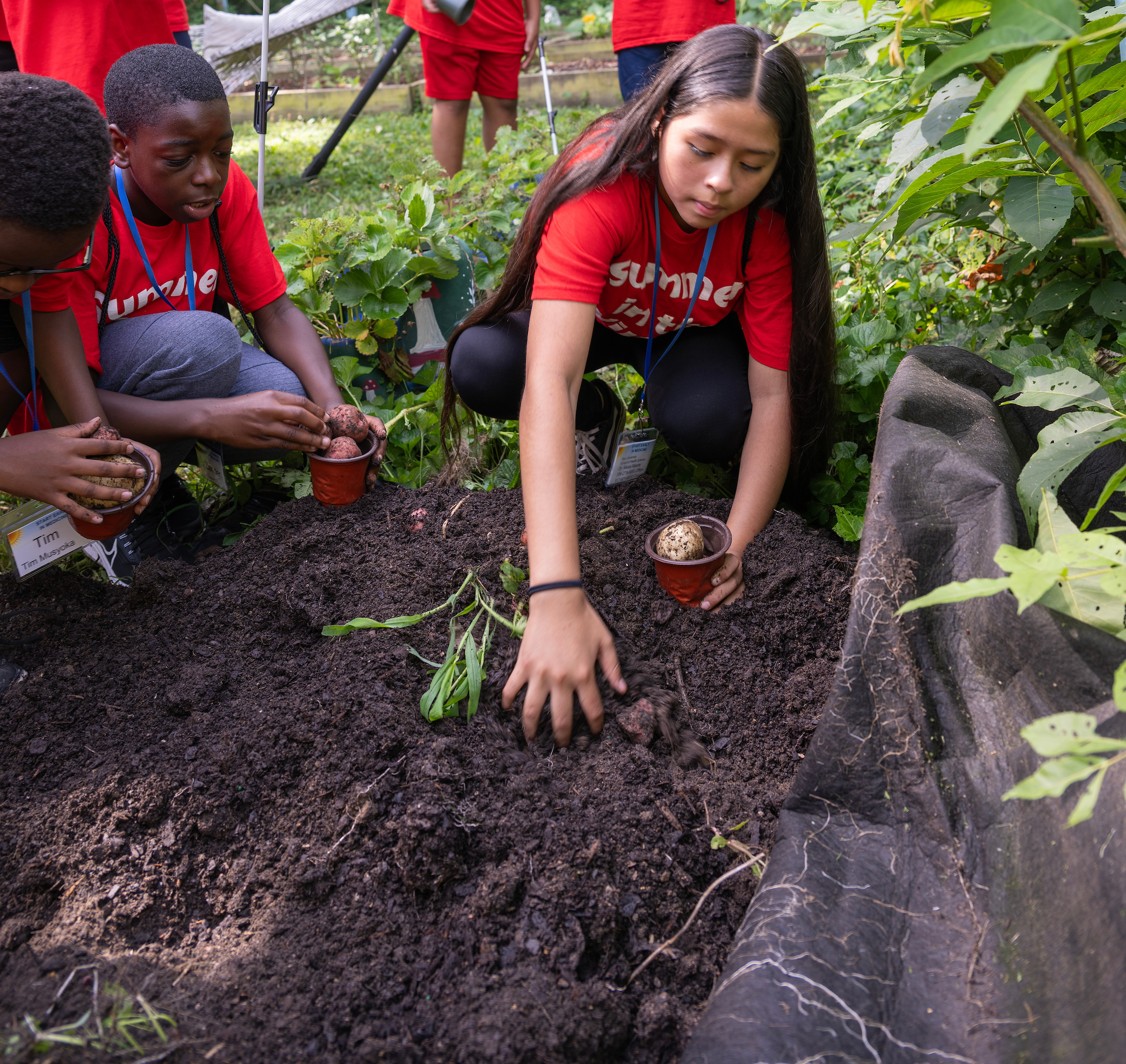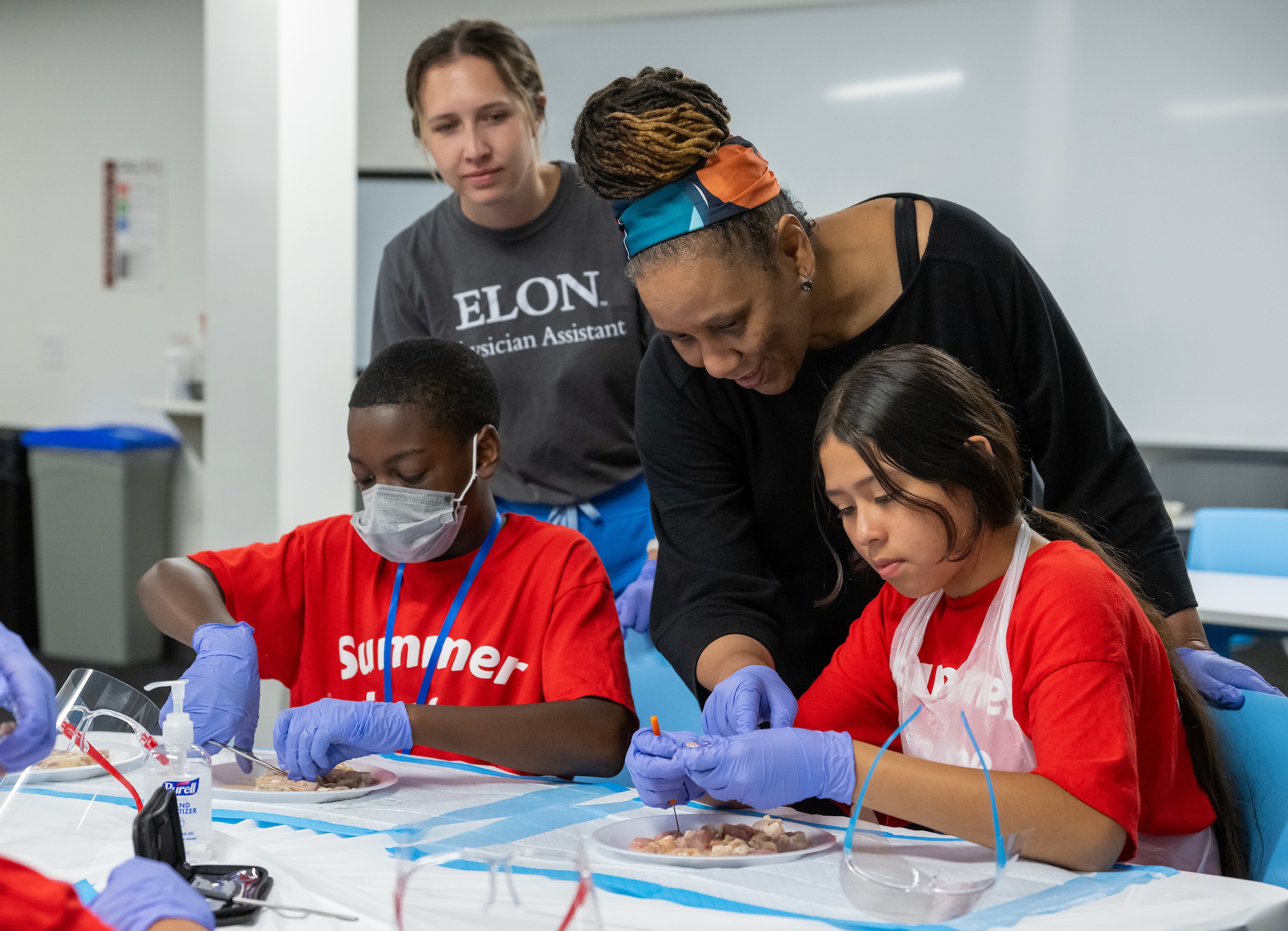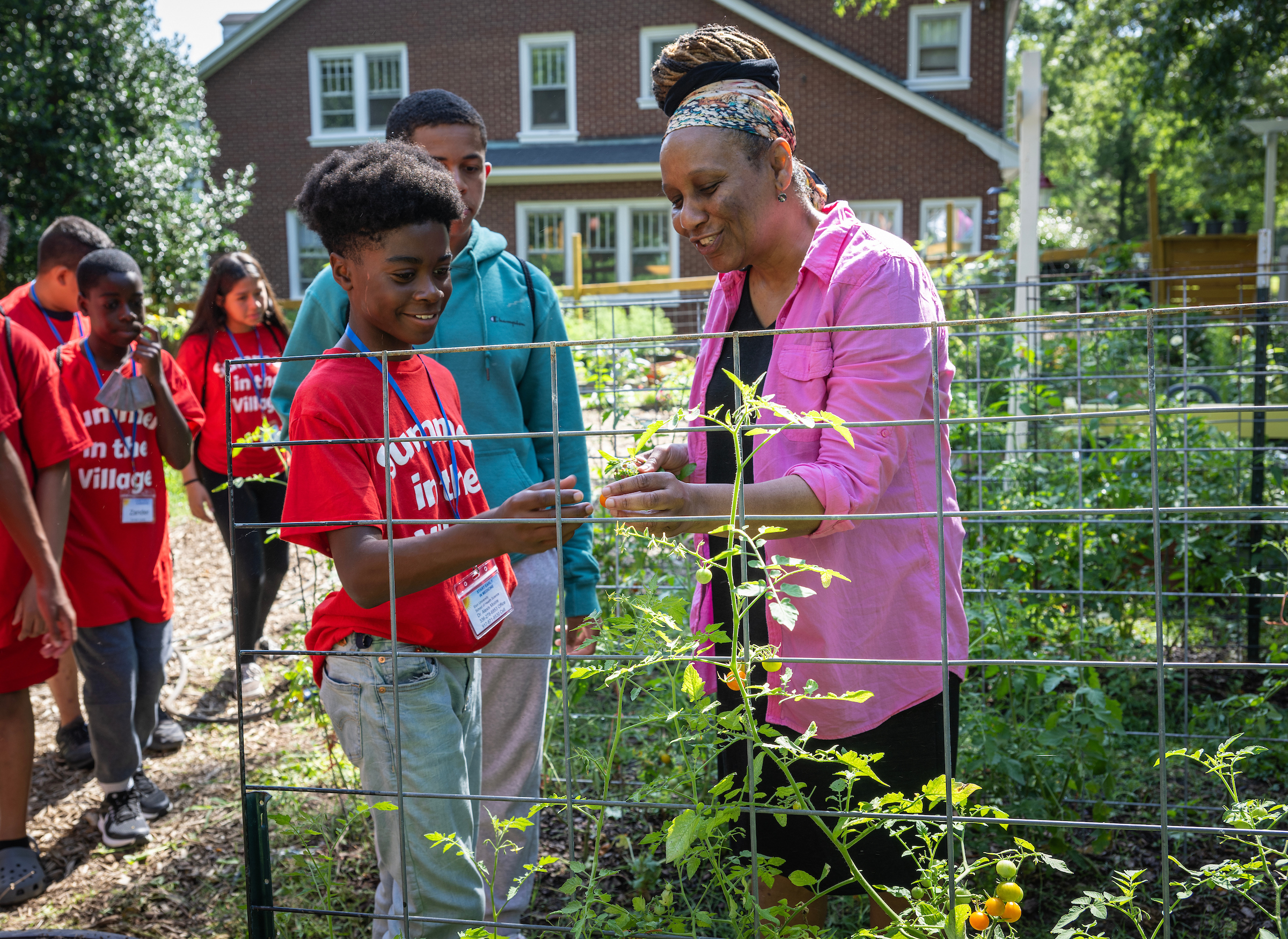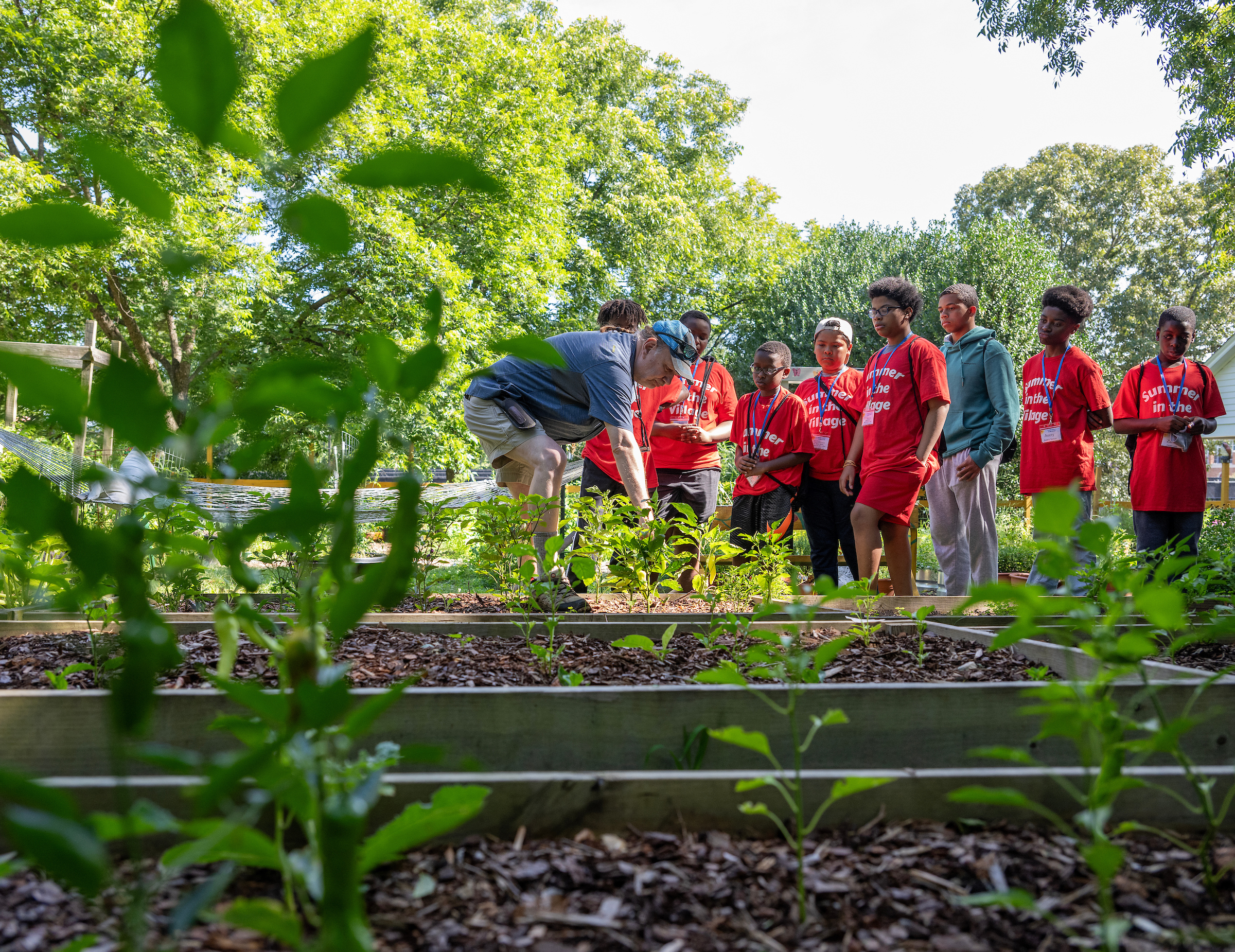Over the three-day session, 18 students from Alamance-Burlington School System's middle and high schools spent time on Elon's campus learning about how food is essentially medicine.
For as important as food is, there is often a level of mystery behind how to get the most out of what you eat.
Clearing up some of the confusion surrounding food was the objective for this summer’s Start Early in Medicine program, “Food is Medicine.” Over the three-day session, 18 students from Alamance-Burlington School System’s middle and high schools spent time on Elon’s campus learning about how food is essentially medicine.

“Proper nutrition is always set up as some difficult thing to do,” said Alexis Moore, assistant professor of physician assistant studies and director of the Start Early in Medicine program. “But it’s not.”
The Start Early in Medicine initiative is a grant-supported program aimed at middle-school students of color in exploring health/medical careers. Also supported by the Center for Access and Success (CAS). The students were also on Elon’s campus during the Summer in the Village program, which continues the work of the “It Takes a Village” project during the summer.
The activities over the three days were to show students that it is attainable to use food as a way to preserve health and fight disease. The students dissected cow stomachs and visited the Elon Community Garden to gather vegetables and herbs that were used during a cookout where they ate plant-based burgers and vegan sides.
For breakfast, the students made a breakfast of yogurt, oats and fruit. The students learned the concept of “nutritional allowance,” a daily level of intake sufficient to meet the nutrient requirements. And they also went over some of the laws of good health — sunshine, sleep and water.

“The whole idea of this program is not just telling, it’s about showing,” Moore said.
Start Early in Medicine branched off from Alamance Community College’s Medical Bridge: Minority Men in Medicine initiative. The program is now open to both male and female students.
Josie McWhorter ’24 was one of the volunteers helping with the program this summer and said that she learned just as much from the students as they did from her.

“It just shows how important programs like this are because they are definitely going into school with a leg up,” McWhorter said. “Some of the things they were learning were things that I learned in college.
Eva Colon ’24 said seeing the younger students grow more excited in the garden “warmed her heart.”
“It was really rewarding seeing how excited younger people are about gardening,” she said. “I hope it inspires the younger generation to do their own gardening and get more involved with nature. As someone who deals with anxiety, the garden has helped me balance my life and I hope students will understand the balance of going into nature.”



